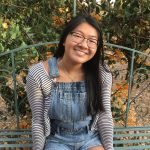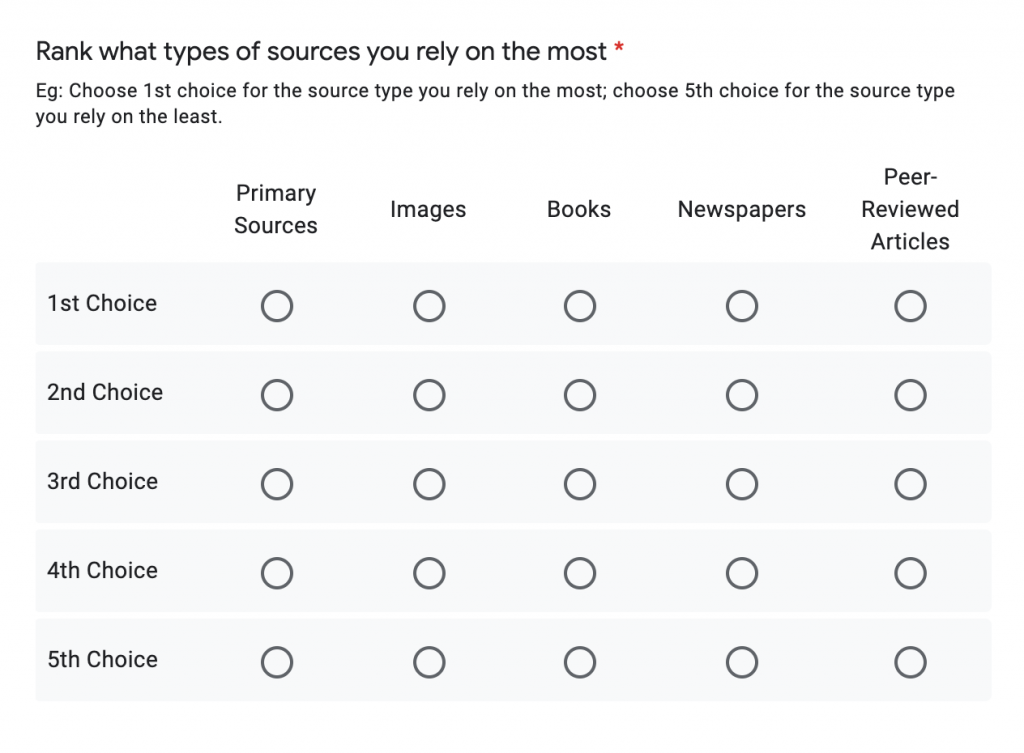by Katherine Chen ’23
Last year around this time I wrote a blog post about my experiences with the library and what I learned as a first year at Cal. Now, I’m writing a blog post about what I learned as an Undergraduate Library Fellow, all from my bedroom.
I applied to the Undergraduate Library Fellowship during the end of my first year at Cal because I wanted to not only learn more about library resources and design, I also wanted to share them with my peers and better understand how my peers viewed the library. The peer to peer activities and workshops my ULF cohort did together showed me that library resources are not accessible to everyone, with one activity in particular standing out to me. We were given a task to find a resource through the library website using whatever means we could think of, I volunteered to go first and had a time limit of five minutes. Unfortunately, I spent those entire five minutes going in circles; I could not figure out how to navigate the website to find the resource and I just became more confused and discouraged the longer I tried. Whether it be because of faulty design or just because students were not aware of such resources, students were not taking full advantage of all the amazing resources the library had to offer. From the thousands of databases offered, subject librarians who you can meet with to help with your research and assignments, to gaining access to research articles found on Google Scholar— the library offers so much but students were not utilizing them.
Once I learned more, I quickly wanted to share everything with everyone, but I realized I could not just start there. As a cohort, we learned to approach the design process with empathy, remembering that the aim is to help people, not just solve problems. Thus, I first had to learn where students had these gaps in library resources and student awareness in order to help them.
With my affinity group, we worked to craft a survey aiming to learn about people’s research methods and practices when they use Berkeley library services. With this, we hoped to understand the gaps in research knowledge and how to help students overcome those gaps. Crafting the survey, however, was not a walk in the park.
Brainstorming questions came relatively easy— it was creating the questions with intention while also designing them with the back end in mind that was not so easy. We went through several iterations of the survey and scrapped many questions throughout because we realized they were either not conducive to our intentions with the survey, or the question would not give us information to learn from. One question in particular was very tricky: what types of resources users rely on the most. This question went through at least three different phases. The first iteration of the question had issues because the potential answers would not tell us where the gaps in research were. The second iteration used jargon that most students would not understand, and the third iteration was too long of a question to ask. Ultimately, we refined the question to what it is today (pictured below) with the help of the wonderful mentors, but the journey was not easy.

Through this process and with the help of the mentors and my affinity group, I learned about the importance of iteration and intention. If a project is important, you will not work on it once then call it done. It will require your prolonged attention and energy, and with that comes constant refinement. As you refine your project, you have to remember the intentions of it— in fact, that is a guiding principle of the iterative process. What are your goals with this project and how is the project leading you towards accomplishing those goals? This question helped me frame my approach to the project and became a guide that I turned to whenever I needed aid.
My time as a fellow has been incredibly rewarding. Not only have I met wonderful people (special shoutout to my mentors Kristina, Nicole, and Kiyoko!) and learned more about the library resources, I learned about new ways of thinking that I will bring along with me wherever I go.